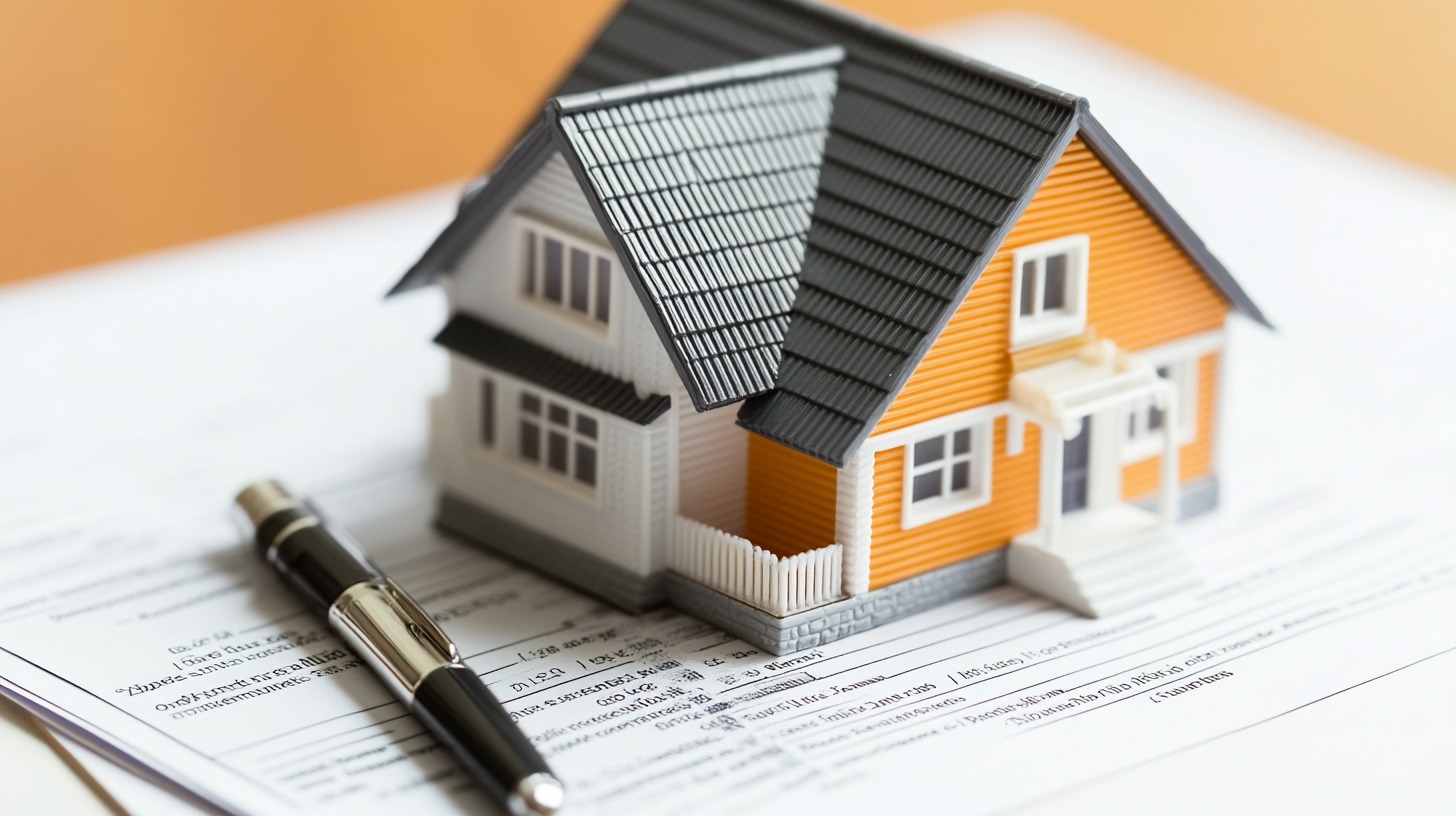Table of Contents
Quality Service Guarantee Or Painting Free

Get a rental agreement with doorstep delivery

Find the BEST deals and get unbelievable DISCOUNTS directly from builders!

5-Star rated painters, premium paints and services at the BEST PRICES!
Loved what you read? Share it with others!


Submit the Form to Unlock the Best Deals Today
Check Your Eligibility Instantly

Experience The NoBrokerHood Difference!
Set up a demo for the entire community
Difference Between Home Loan and Loan Against Property
Table of Contents
Are you confused about whether to choose a home loan or a loan against property? Do you know the difference between the two loan products?If that is not the case, then you are at the appropriate place.
In this blog post, we will help you understand the differences between a home loan and a loan against property, and guide you to make an informed decision.
Understanding Home Loans and Loan Against Property

Before we compare home loans and loans against property, let's understand what they are. Home Loans and Loan Against Property are both types of secured loans that are commonly used to fund the purchase of a property. The primary difference between the two is the purpose for which the loan is taken.
Quality Service Guarantee Or Painting Free

Get a rental agreement with doorstep delivery

Find the BEST deals and get unbelievable DISCOUNTS directly from builders!

5-Star rated painters, premium paints and services at the BEST PRICES!
A Home Loan is specifically designed for the purpose of buying or constructing a house or a residential property. The loan amount is disbursed directly to the builder or seller of the property. The repayment tenure of a home loan can range from 5 to 30 years, depending on the borrower's age, income, and other eligibility criteria. The interest rate on a home loan can be fixed or floating, and it is generally lower than the interest rate on a loan against property.
A Loan Against Property, on the other hand, is a multipurpose loan that can be taken for any personal or business needs. The loan amount is calculated based on the market value of the property pledged as collateral. The repayment tenure of a loan against property can range from 5 to 20 years. The interest rate on a loan against property can be fixed or floating, and it is generally higher than the interest rate on a home loan.
Eligibility Criteria for Home Loan and Loan Against Property

The eligibility criteria for a home loan and a loan against property are different. For a home loan, the borrower should have a stable income, a good credit score, and should not have any outstanding loans. In contrast, for a loan against property, the borrower should own a property with a clear title, and the property should have a minimum market value to be eligible for the loan.
Eligibility criteria for Home Loan:
- The borrower must be a resident of India.
- The borrower must be at least 18 years of age.
- The borrower must have a stable source of income.
- The borrower's credit score should be above 650.
Eligibility criteria for Loan Against Property
- The borrower must be a resident of India.
- The borrower must be at least 21 years of age.
- The borrower must own a property that is free from any encumbrances.
- The property should have a clear title.
- The borrower's credit score should be above 650.
Securing Your Future: The Advantages of Home Loans and Loan Against Property

Both home loans and loans against property have their benefits. A home loan offers tax benefits under Section 80C of the Income Tax Act, and the loan tenure can be up to 30 years. A loan against property has a lower interest rate than personal loans, and the loan amount can be used for any purpose, including business expansion or education.
Benefits of Home Loan
- Lower interest rates compared to other loan products.
- Longer repayment tenure, which reduces the burden of EMIs.
- Tax advantages on both principal and interest repayment.
Benefits of Loan Against Property
- A multipurpose loan that can be used for personal or business needs.
- Higher loan amount compared to other loan products.
- Longer repayment tenure, which reduces the burden of EMIs.
- Lower interest rates compared to unsecured loans.
The Drawbacks of Home Loans and Loan Against Property

Both home loans and loans against property come with their own set of advantages and disadvantages. Understanding these can help you make an informed decision on which loan product is best suited for your financial needs. Here are some drawbacks of both the loan products
Disadvantages of Home Loan
Here are some cons of a home loan:
- Long repayment period: Home loans usually come with long repayment periods that can extend up to 30 years. While this may result in lower EMIs, it also means that the borrower will be paying interest for a longer period, which increases the overall cost of the loan.
- Prepayment penalties: Banks and other lending institutions often charge a penalty if the borrower wants to prepay the loan amount. This can be a significant deterrent for those who want to clear the loan early.
- Strict eligibility criteria: Lenders have strict eligibility criteria for home loans, including factors such as income, credit score, and age. Obtaining a loan may prove to be challenging for certain borrowers.
- High interest rates: Home loans can have high-interest rates, especially for those who have a poor credit score. This can result in a higher EMI, making it difficult for some borrowers to manage their finances.
- Property valuation: Banks and other lending institutions usually require the property to be mortgaged to be valued by a certified valuer. If the valuation is lower than the loan amount, the borrower may not get the full loan amount, which can be a problem.
- Processing fees and other charges: Home loans usually come with processing fees, administrative charges, and other fees that can add up to a significant amount. This can increase the overall cost of the loan and make it more expensive.
Disadvantages Of Loan Against Property
While loans against property have many benefits, they also come with their own set of cons that should be taken into consideration:
- Higher interest rates: Loan against property generally come with higher interest rates compared to home loans. This is because the bank considers it to be a riskier loan as they have no control over how you use the loan amount.
- Risk of losing property: In case you are unable to repay the loan amount, the lender can seize and sell your property to recover their money. This is a big risk that one should keep in mind while opting for a loan against property.
- Longer loan tenure: Loans against property usually have a longer tenure compared to personal loans, which means that you will have to pay interest for a longer period of time. This also means that the total interest paid over the loan tenure will be higher.
- Valuation of property: The loan amount that you are eligible for is based on the market value of the property. In case the valuation of the property is lower than expected, you may not be able to get the loan amount that you require.
- Processing time: Loans against property usually take longer to process compared to personal loans or other types of loans. This means that if you require the funds urgently, a loan against property may not be the best option.
Types of Home Loans and Loan Against Property

Home loans and loans against property come in different types. Home loans can be classified as fixed-rate, floating-rate, or hybrid. A loan against property can be classified as commercial or residential, and the loan amount can be used for any purpose.
Types of Home Loans:
- Home Purchase Loan: Used for purchasing a new house or apartment.
- Home Construction Loan: Used for constructing a new house on an existing plot.
- Home Improvement Loan: Used for renovating or improving an existing house.
- Home Extension Loan: Used for extending an existing house.
Types of Loan Against Property:
- Residential Loan Against Property: Used for personal needs such as education, marriage, medical expenses, etc.
- Commercial Loan Against Property: Used for business needs such as working capital, expansion, etc.
- Loan Against Rental Income: Used for purchasing a new property that generates rental income.
Comparison of Interest Rates of Home Loan vs Loan Against Property

Interest rates are one of the most crucial factors to consider while choosing between a home loan and a loan against property. Home loans are usually available at lower interest rates than loans against property, as home loans are secured against the property you are buying, while loans against property are secured against the property you already own.
The interest rates for home loans usually range from 6.5% to 9%, while loans against property usually come with interest rates between 8% to 14%. However, interest rates may vary depending on various factors, such as the borrower's credit score, loan amount, tenure, and lender's policies.
It's important to note that interest rates on loans against property are usually higher as they are a riskier loan product for the lender. This is because the property used as collateral for the loan may depreciate in value over time, or the borrower may default on the loan repayment.
Understanding Floating and Fixed Interest Rates for Home Loan and Loan Against Property

Another important aspect to consider while choosing between a home loan and a loan against property is the type of interest rate - floating or fixed.
In a fixed interest rate, the interest rate remains constant throughout the loan tenure. In contrast, in a floating interest rate, the interest rate fluctuates based on market conditions. Home loans and loans against property can come with either a fixed or floating interest rate.
Fixed interest rates provide certainty to the borrower as the interest rate remains the same throughout the loan tenure, making it easier to plan monthly payments. On the other hand, floating interest rates are subject to market fluctuations, and borrowers may need to adjust their monthly payments accordingly.
Impact of Credit Score on Interest Rates of Home Loans and Loan Against Property

Credit score plays a vital role in determining the interest rates for both home loans and loans against property. A credit score is a numeric representation of a borrower's creditworthiness, based on their credit history and past financial behaviour.
Borrowers with a good credit score usually get a better deal in terms of interest rates as they are considered less risky by lenders. A good credit score can also help borrowers negotiate better interest rates and loan terms.
On the other hand, borrowers with poor credit scores may have to pay higher interest rates or may not be eligible for a loan at all. Therefore, it's crucial to maintain a good credit score by paying bills and debts on time and avoiding defaulting on loan repayments.
Home Loan vs Loan Against Property: Key Takeaways

Refer to this table for a quick comparison of the two loan products:
| Category | Home Loan | Loan Against Property |
| Definition and Differences | A home loan is a secured loan taken to purchase or construct a residential property. A loan against property (LAP) is a type of secured loan that is taken by keeping a property as collateral. | A home loan is a secured loan taken to purchase or construct a residential property. A loan against property (LAP) is a type of secured loan that is taken by keeping a property as collateral. |
| Eligibility Criteria | Age: 18-70 years; Employment: Salaried/self-employed; Credit Score: 750 or above; Income: As per lender's requirements; Property Ownership: Ownership/Co-ownership of residential property. | Age: 18-70 years; Employment: Salaried/self-employed; Credit Score: 650 or above; Income: As per lender's requirements; Property Ownership: Ownership of residential or commercial property. |
| Benefits | Tax benefits under Section 80C and Section 24 of the Income Tax Act; Longer repayment tenure of up to 30 years; High loan amount eligibility; Lower interest rates. | High loan amount eligibility; Flexible repayment tenure of up to 15 years; Lower interest rates; Easy documentation and processing; Can be used for various purposes. |
| Types | Home Purchase LoanHome Improvement LoanHome Conversion LoanHome Extension LoanHome Construction Loan | Regular Loan Against PropertyLease Rental Discounting Loan Against PropertyTop-up Loan Against Property |
| Interest Rates | Fixed/Floating interest rates depending on lender's policies and borrower's preferences. | Fixed/Floating interest rates depend on the lender's policies and borrower's preferences. |
| Factors affecting Interest Rates | Credit Score; Loan Amount; Income; Repayment Capacity; Property Value. | Credit Score; Loan Amount; Income; Repayment Capacity; Property Value. |
| Comparison of Interest Rates | Home loans generally have lower interest rates than loans against property. | Loans against property generally have higher interest rates than home loans. |
| Floating and Fixed Interest Rates | Home loans and loans against property can have both fixed and floating interest rates depending on the borrower's preference. | Home loans and loans against property can have both fixed and floating interest rates depending on the borrower's preference. |
| Impact of Credit Score | Credit score plays a crucial role in determining the interest rate of a home loan. Borrowers with higher credit score can avail lower interest rates. | Credit score plays a crucial role in determining the interest rate of loan against property. Borrowers with higher credit score can avail lower interest rates. |
| Pros and Cons | Pros: Longer repayment tenure; Lower interest rates; Tax benefits; High loan amount eligibility. Cons: Property as collateral; Longer processing time. | Pros: High loan amount eligibility; Flexible repayment tenure; Lower interest rates; Easy documentation and processing. Cons: Property as collateral; Higher interest rates. |
| Risks Involved | Risk of defaulting on loan repayments; Risk of losing property in case of default. | Risk of defaulting on loan repayments; Risk of losing property in case of default. |
| Tax Benefits and Repayment Options | Tax benefits are available under Section 80C and Section 24 of the Income Tax Act; Repayment options include EMI, Pre-EMI, and Part-EMI. | Tax benefits are available under Section 37(1) of the Income Tax Act for commercial property; Repayment options include EMI, Pre-EMI, and Part-EMI. |
In conclusion, understanding the difference between a home loan and a loan against property is crucial for any homebuyer or property investor. Each loan product has its pros and cons, and it is essential to choose the right one based on your financial needs and eligibility criteria. With the help of NoBroker's financial experts, you can make an informed decision and choose the best loan product that suits your requirements. NoBroker's loan services offer free consultation, an easy application process, and hassle-free loan disbursal, making it a one-stop solution for all your loan needs. So, if you are looking for the best loan products in the market, look no further than NoBroker's financial experts.

Frequently Asked Questions
A home loan is a type of loan that is specifically used to purchase or construct a property. On the other hand, a loan against property is a type of loan where you can borrow money against the value of your property, whether it is residential or commercial.
The eligibility criteria for both loans may vary from lender to lender. However, some of the common criteria include age, income, credit score, employment status, and property value.
The interest rates for both loans can vary depending on the lender and other factors such as loan amount, repayment tenure, and credit score. In general, home loan interest rates may be lower than loan against property interest rates.
Both home loans and loans against property offer tax benefits on the principal and interest payments. Under Section 80C of the Income Tax Act, the principal amount of both loans is eligible for tax deduction up to a certain limit. The interest paid on a home loan is also eligible for tax deduction under Section 24 of the Income Tax Act. However, the tax benefits may vary based on the loan amount and the purpose of the loan.
NoBroker offers a range of financial services, including home loans and loans against property. You can get a free consultation with their loan experts to understand the various loan products and their eligibility criteria. Additionally, you can also apply for a loan through their platform and track your application status.
Recommended Reading

Home Loan for Women in India - Interest Rates and Benefits
January 31, 2025
4844+ views

What is Home Loan Sanction Letter and Why is it So Important?
January 31, 2025
9635+ views

Buying Your Dream Home? These Are the Home Loan Documents Required in India!
January 31, 2025
3040+ views

REPO Rate Linked to Home Loans
January 31, 2025
5224+ views

Home Loan Insurance: Protecting Your Investment
January 31, 2025
13911+ views
Loved what you read? Share it with others!
Most Viewed Articles

Home Loan Interest Rates for All Banks in March 2025
March 4, 2025
32715+ views

SBI Home Loan Interest Rates - Updated in March 2025
March 4, 2025
27584+ views

SBI Home Loan Interest Certificate: Benefits, Offline and Online Options, Get via Yono App in 2025
January 31, 2025
26996+ views

ICICI Home Loan Interest Rates - Updated in March 2025
March 4, 2025
24389+ views

Top 10 Housing Finance Companies in India
January 31, 2025
18583+ views
Recent blogs in
Union Bank Home Loan Interest Rates - Updated in March 2025
March 4, 2025 by NoBroker.com
SBI Home Loan Interest Rates - Updated in March 2025
March 4, 2025 by Siri Hegde K
IDBI Home Loan Interest Rates - Updated in March 2025
March 4, 2025 by NoBroker.com
HDFC Home Loan Interest Rates - Updated in March 2025
March 4, 2025 by NoBroker.com




Join the conversation!